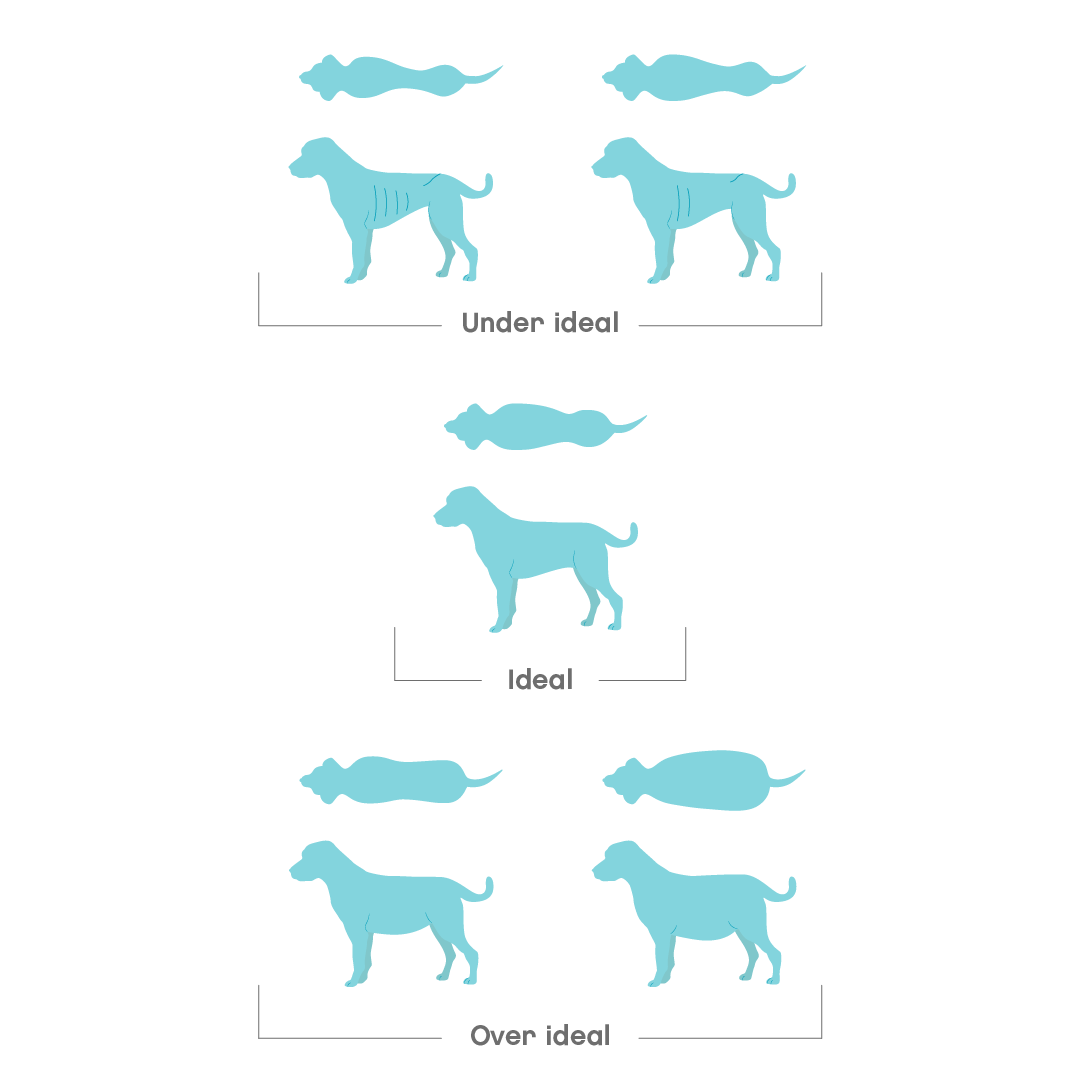Lethargy means low energy and is a very common problem in dogs. There are many different conditions that can be the cause of lethargy. Conditions that cause lethargy can range from something mild that passes quickly to more serious conditions.
Lethargy can be a symptom of most conditions that affect dogs, so a physical exam or diagnostic tests are often needed to determine the cause. We can also describe lethargy as tiredness, listlessness, or weakness. Lethargy is a symptom that can affect dogs of any age.
What to do
What to do if your dog is lethargic
There are many different causes of lethargy, and some can be very serious. If your dog suddenly becomes lethargic, try to assess the following
- Check your dog for any new lumps, wounds or changes in the way they are walking
- If possible, check your dog’s gums; white or yellow gums can indicate extremely serious disease
- Monitor your dog carefully to assess if they are drinking or peeing more than normal
- Check your dog for any weight loss
- Monitor carefully for any changes to your dog’s appetite, stool or vomiting

Speak to a vet as soon as possible if your dog is lethargic. Our Joii Vets are available 24 hours a day for advice.
Causes
Most common causes of lethargy in dogs
There are a vast number of causes of lethargy in dogs; the following list are some of the most common
- Infections, such as Pyometra or Kennel cough
- Fever
- Pain, such as Arthritis or Wounds
- Chronic kidney disease
- Gastrointestinal disease, such as Vomiting and Diarrhoea
- Pancreatitis
- Heart disease
- Hormonal diseases, such as diabetes, Cushing’s, and Addison’s
- Neoplasia (cancer)
When to worry
When you should be worried about lethargy in dogs
Seek help from a vet if
- Your dog is drinking excessively
- You have any questions about prescription medications
- Your dog is constantly vomiting
- Your dog is losing weight
Call us and speak to one of our Joii Vets if
- Your dog has been lethargic for less than 24 hours
- You are unsure if your dog is in pain
- Your dog has developed a new lump and you are unsure what to do
- Your dog has mild vomiting or diarrhoea
Prevention
Tips on how to prevent lethargy in dogs
There are so many different causes of lethargy, and not all are preventable. Read the following tips to help protect your dog wherever possible.
- Make sure your dog is up to date with their yearly vaccinations
- Protect your dog against ticks, mites and other parasites using regular preventatives
- Neuter your female dog to prevent a pyometra
- Don’t feed fatty snacks and keep your dog on good quality, balanced dog food
- Do not leave medications or human food in areas where your dog can reach them.
- If you travel abroad with your dog, make sure to keep up to date with vaccines and parasite preventatives and avoid contact with stray or wild animals. Constant supervision is advised when abroad.
- Keep your dog in a healthy body condition and use joint supplements to help balance arthritic changes
Body Condition Score (BCS) is a scale that gives a practical evaluation of the fat coverage of your dogs body. By checking how easy or not it is to feel certain bony areas of the body, a score is then produced. There are several scales, from 1 to 5 or 1 to 9. The ideal body condition lies in the middle, so either 3/5 or 5/9. The body areas normally checked for fat coverage are: 1. ribs and spine 2. hips and shoulders 3. waist Here are a few tips on how to do it. With your pet in a standing position:
Body Condition Scoring (BCS) in dogs

Diagnosis
How to know if your dog is lethargic
Lethargy is a very vague symptom and may not be noticed right away. Owners often describe their dogs as being off colour or not quite their normal selves. Other symptoms include
- Reluctant to go for walks
- Slower than normal when out walking
- Hiding, not seeking attention
- Not interested in normal activities
- Sleeping more than normal
- Not reacting when called or patted

Home treatment
How to treat a lethargic dog at home
It is important to speak to a vet if your dog is lethargic. A vet will be able to help you decide if your dog needs a physical exam and diagnostic tests or if it is ok to monitor at home. Our Joii vets are available 24 hours a day for advice.
- Encourage your dog to drink water to reduce the chance of dehydration developing
- Allow your dog to rest in a quiet, shaded and comfortable area
- Encourage your dog to eat. Heating up their food slightly can help, or small meals of bland food may be advised.
- Monitor carefully for any changes in their appetite, any vomiting, or any changes to their stools.
- A physical exam will usually be advised if the lethargy is severe or not improved after 24 hours
Vet treatment
Vet treatment for lethargy in dogs
A physical exam will help your vet narrow down some of the causes of lethargy. This includes
- Taking their temperature
- Feeling for any pain in their tummy
- Checking their lymph nodes
- Listening to their heart and lungs and measuring their heart rate.
It’s important to let your vet know if your dog has ever been abroad, been in contact with anything abnormal (such as human medications), or had any other recent changes.
Further diagnostic tests may include
- Blood and urine tests
- Biopsy or surgical removal of any abnormal lumps
- Imaging: x-rays, ultrasound, CT, or MRI.
Vet treatment for lethargy will depend on the cause and may include
- Hospitalisation for monitoring, intravenous fluids and injectable medications
- A course of antibiotics
- Anti-inflammatory medication to help with pain and fever if present
- Pain relief medications
- Tummy protectants
- Surgery or more specific medications may be required, depending on the cause of the lethargy.
Risk
Are some dogs more at risk of lethargy than others?
Any age, breed, or sex of dog can develop lethargy.
- Pyometra risk increases with age. It’s more commonly a condition in female dogs that have not been neutered. Neutered females can very rarely develop stump pyometra.
- Dogs that are not vaccinated have a much higher risk of illness from different infectious causes of lethargy, such as kennel cough and parvovirus.
- Dogs that are not covered against parasites have a higher risk of Lyme disease, lungworm, mange, and several others.
- Arthritis, kidney disease, and neoplasia (cancer) are more common in older dogs.
- Heart disease is more common in the following breeds: Cavalier King Charles Spaniel, Poodles, Dachshunds, Schnauzers, Boxers, Doberman, Great Dane, and Rottweiler. Different types of heart disease can affect these breeds and can occur at different ages.
- Dogs that have been abroad are more at risk of rabies, Leishmania, Babesia and several other diseases.
Other causes of lethargy in dogs
- Liver disease. There are many different types of liver disease in dogs. It can affect dogs of all ages. Along with lethargy, symptoms also include Vomiting, jaundice, weight loss, and Diarrhoea. Blood tests and imaging are needed for a diagnosis.
- Dental disease
- Anal gland disease
- Dementia
- Heat stroke
- Hypothyroidism. This is an endocrine disorder in dogs due to a lack of thyroid hormone in the body. Other symptoms include weight gain and changes to the skin condition. Blood tests are needed for a diagnosis, and treatment is for life.
- Certain medications, such as antihistamines, steroids, and anxiety treatments.
- Recent vaccinations, especially primary course as puppy
- Poisons, such as rat bait, xylitol (sweetener), chocolate, and grapes.
- Obesity
- Inadequate nutrition
- Anaemia. This is a condition where there is a lack of red blood cells. There are many different types and causes of anaemia. Some are easy to treat, and others are much more serious. Other symptoms include weight loss, reduced appetite, and pale gums. Blood tests and imaging are usually required to diagnose the different causes.
- Skin diseases: Mange, Food allergies, atopy (environmental allergies), Flea allergy
- Infections: Lyme disease, Leptospirosis, Parvovirus, Lungworm, Leishmania.








